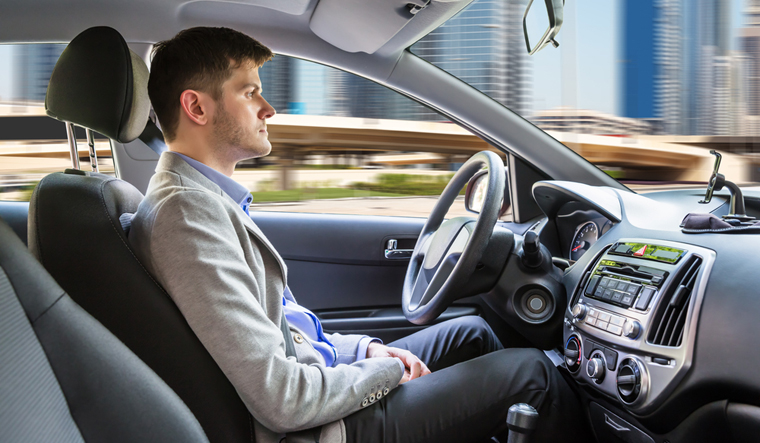Two months ago in Arizona, Uber’s self-driving prototype SUV collided with a pedestrian at nearly 40 miles per hour, killing her. It was Sunday night and the 49-year-old local resident Elaine Herzberg was crossing the road when the Volvo XC 90 injured her fatally. An investigation was launched into the incident and on Friday, last week, Uber shut down its self-driving programme in Arizona.
The incident did something else—it brought 'autonomous cars' into global spotlight again.
Autonomous vehicles, more commonly known as self-driving or driverless cars, were nothing more than a sci-fi concept only a decade ago. Now, several such vehicles are being tested by major technology companies, and several smaller ventures, throughout the world. It can safely be said that the day is not far when autonomous vehicles become a common sight on roads, throughout the world.
With that in mind, it is perhaps worth looking at some of the significant autonomous vehicle programmes and the stage at which they are. While names like Tesla, Waymo and Uber are usually thrown around when it comes to driverless vehicles, research shows that several other companies are also well on their way to building their own.
General Motors (GM) seem to be the closest to releasing a finished product. Unlike many others, they have taken an approach in which they aim to design both the vehicle and the software themselves. Their latest design reveals a vehicle without a steering wheel and other traditional controls. According to GM, their fleet of mass-produced driverless taxis may be operational as soon as next year.
Founded in 2009, Waymo is by far the oldest player in the game, with a significant experiential advantage over its rivals. Originally christened as the ‘Google Self-Driving Car Project’, Waymo later became an independent subsidiary of Google’s parent company; Alphabet Inc. In November last year, it announced that it had already started testing autonomous cars without a safety driver behind the wheel. Earlier this year Waymo declared that it would be placing orders with Jaguar and Chrysler for at least 20,000 vehicles which it plans to convert into driverless taxis. They have chalked out an ambitious plan according to which Waymo’s driverless taxis will be transporting millions of people each day, in just two years.
Technology giant Apple, like GM, was initially planning to build its own hardware and software. Later it switched to designing a technology platform and software for autonomous vehicles. When that didn’t work out, Apple tried to team up with the likes of BMW and Mercedes but was reportedly spurned. The company finally struck a deal with the automobile giant Volkswagen. In a major step down from their original ambitious plans, Apple will now merely convert VW vans into semi-autonomous shuttles to transport their own employees between campuses. Even this project is rumoured to be plagued with setbacks.
Volkswagen however has a bigger tie-up with Aurora. The self-driving start-up is working with both VW and Hyundai to integrate sensors into specific models and launch autonomous ride services akin to Waymo and Uber.
Uber may have shut down its Arizona operations but its autonomous vehicle programme is still very much underway. Uber began fairly late in 2015, when it announced that it would create a fleet of driverless cars. It started with 20 Ford Fusions but soon switched to the current Volvo XC90s. In 2017, Waymo sued Uber claiming that it was using borrowed technology, but the lawsuit was abruptly settled in February, with a $245 million settlement. Uber has now placed an order with Volvo for over 20,000 more SUVs which will be delivered by 2021.
Volvo, incidentally, is working on its own autonomous vehicles. Unlike its well-publicised counterparts, the Swedish automaker has maintained a low profile about it. It is reportedly pioneering technology through which driverless vehicles can communicate with each other in real time.
Daimler, Mercedes’ parent company, paired up with Bosch in April last year to develop driverless cars in the next couple of years. The German automaker’s main rival BMW has similarly made a deal with Intel. Like Volvo, both are keeping their projects under wraps.
One cannot talk about technological innovation in the automobile sector without mentioning Elon Musk’s Tesla. Tesla’s ‘Autopilot’ project has already hit the market. It is a feature which makes its vehicles semi-autonomous using 360 degree camera vision, sonar and radar. The car manufacturer indicates that their cars have all the hardware required for fully autonomous driving, but they must resolve software and legal issues before that feature is rolled out.
The Autopilot project has been involved in several accidents over the years, but the company maintains that its system is still safer than a human driver. Tesla has hinted that it may arrange for a coast to coast driverless demonstration later this year.
The driverless phenomenon is not limited to the United States and Europe. The Renault-Nissan-Mitsubishi Alliance is planning to launch an autonomous taxi service in Japan this year. Meanwhile, Toyota has launched its own company for developing driverless vehicles and plans to start testing by 2020. In China, software company Baidu has received permission to test its own self driving cars. And, it is not the only one.
While there are legal hurdles to cross and several bugs to fix, a world with self-driving vehicles seem to be close. Semi-autonomous cars are already a reality and are bound to become more affordable and accessible in the coming years.
In 2002 the world saw the fictional British spy, James Bond, summon his Aston Martin Vanquish with just a click of a button; a Tesla Model X today can do that, and more.
Exciting times, these.


